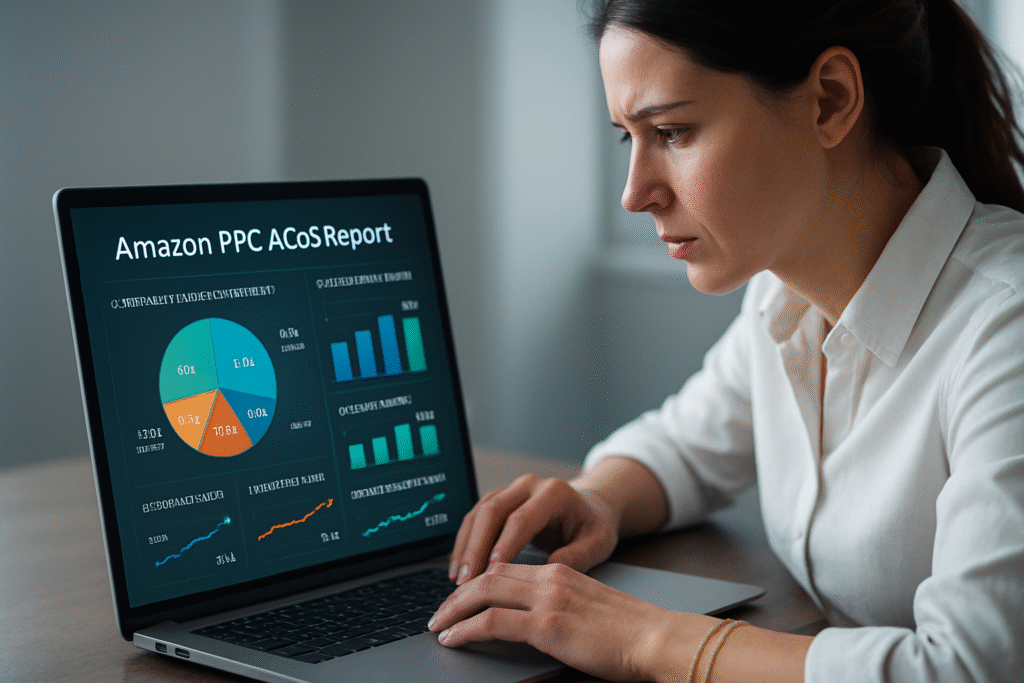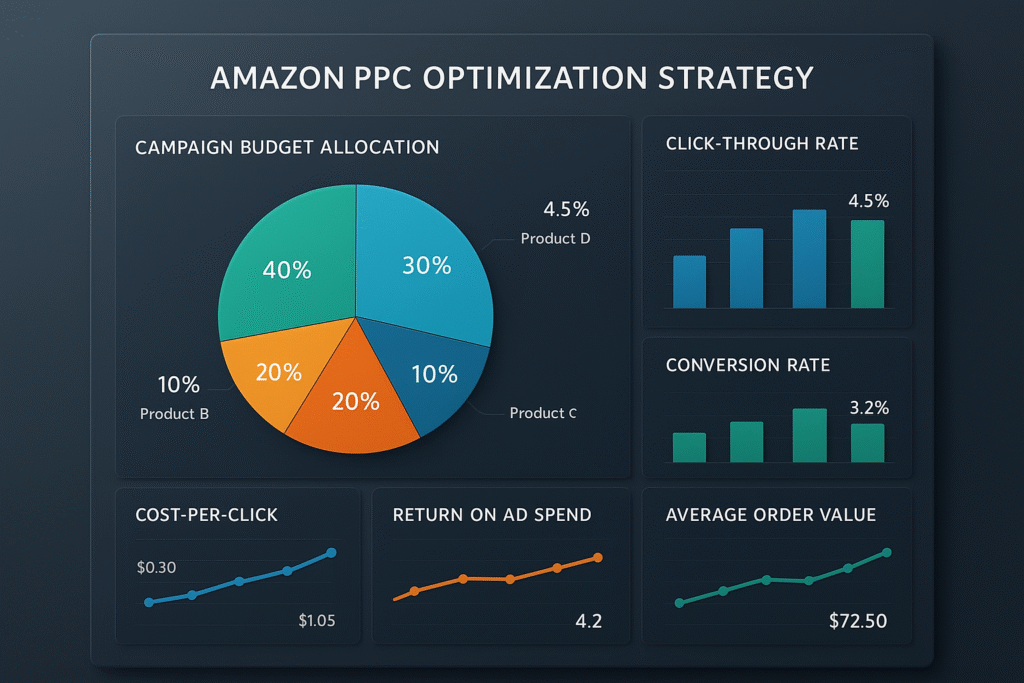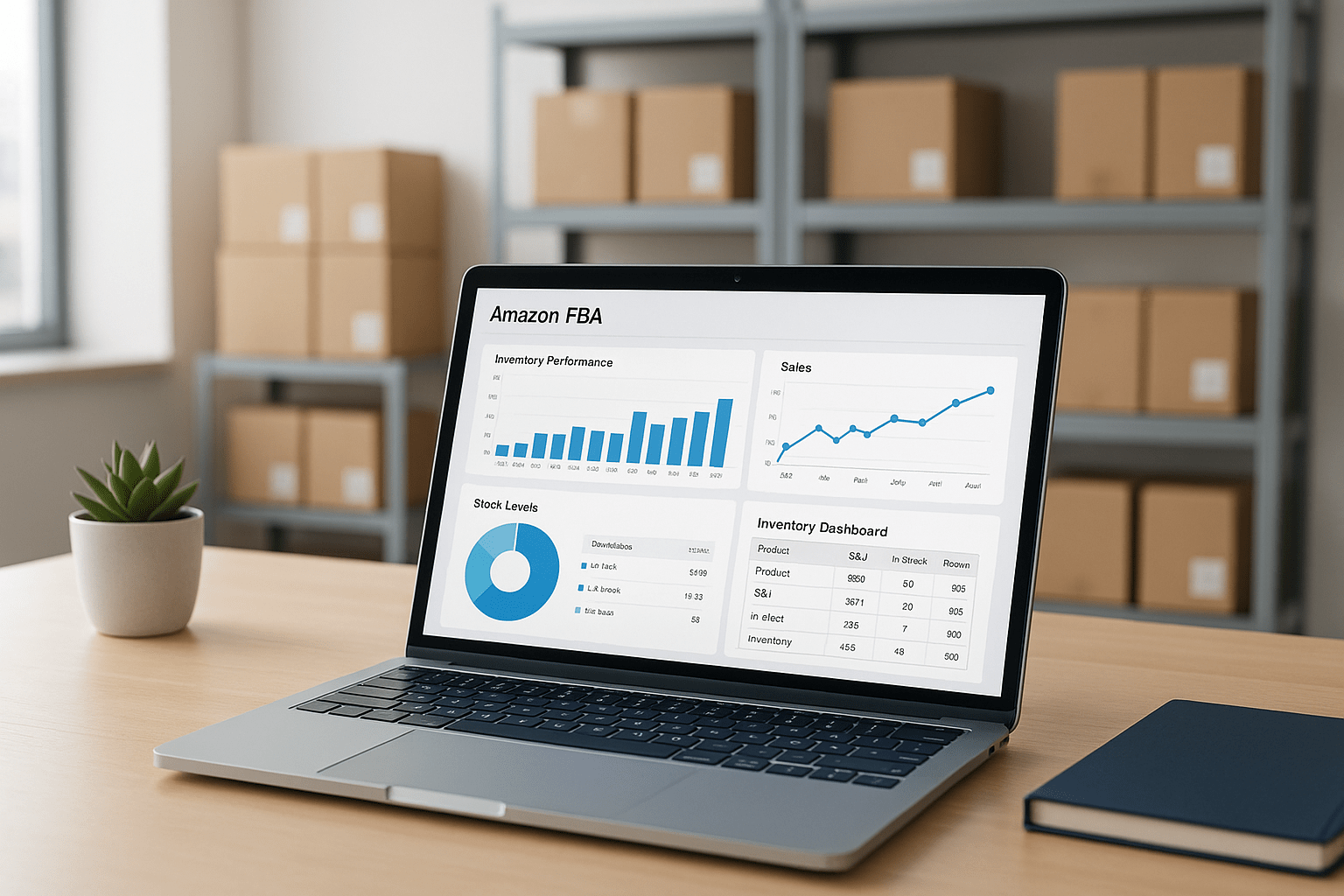Amazon PPC Optimization: Tips to Lower ACoS and Boost Sales.
Amazon PPC Optimization
Table of Contents:
- What is Amazon PPC Optimization?
- The Role of PPC in Amazon’s Marketplace
- Why Amazon Advertising Optimization Matters
- Amazon PPC Strategy: Laying the Groundwork
- Defining Campaign Goals
- Budgeting for PPC Success
- Competitive Analysis in Amazon PPC
- Defining Campaign Goals
- Amazon PPC Campaign Optimization Best Practices
- Keyword Research and Match Types
- Negative Keywords and Waste Control
- Bid Management and Placement Strategie
- Ad Group Structuring
- Keyword Research and Match Types
- How to Lower ACoS in Amazon PPC?
- Boost Sales with Amazon PPC Tips
- Amazon PPC Management: Tracking & Optimization
- Advanced Amazon PPC Guide for Scaling
- Amazon PPC Best Practices to Follow in 2025 and Beyond
- Common Mistakes in Amazon PPC Optimization
- Case Studies: Success Stories of PPC Optimization
- Conclusion
- Faqs
Introduction:
Amazon has transformed into the world’s largest online marketplace, offering opportunities for millions of sellers. Yet, with every opportunity comes competition. Simply listing a product is not enough anymore. You need visibility, relevance, and the ability to stand out from the crowd. This is where Amazon PPC Optimization becomes crucial.
By mastering advertising campaigns, reducing wasted spend, and focusing on conversions, sellers can lower ACoS while simultaneously boosting sales. Whether you are a small business owner, a brand founder, or a CEO managing a team, this comprehensive guide will give you the tools, strategies, and insights you need to win with Amazon PPC in 2025 and beyond.
What is Amazon PPC Optimization?
Amazon PPC Optimization is the practice of refining pay-per-click campaigns on Amazon to maximize performance. It involves:
- Selecting high-performing keywords
- Managing bids to control costs
- Using negative keywords to cut waste
- Monitoring performance metrics such as CTR, CVR, and ACoS
- Aligning ads with optimized product listings
The goal is simple: achieve the best possible ROI by reducing wasted ad spend and turning clicks into profitable sales.
| Metric | What It Means | Why It Matters |
|---|---|---|
| ACoS | Advertising Cost of Sales | Shows efficiency of ad spend vs. sales revenue |
| CTR | Click-Through Rate | Measures how engaging your ad is |
| CPC | Cost Per Click | Tells how much you pay for each ad click |
| Conversion % | Sales generated after ad clicks | Shows how well your listing converts |
| Impressions | Number of times ads are shown | Indicates reach and visibility |
The Role of PPC in Amazon’s Marketplace:
PPC is no longer optional—it’s essential. With millions of sellers competing, organic ranking alone can’t guarantee sales. PPC allows sellers to:
- Increase visibility during product launches
- Defend brand presence against competitors
- Improve organic ranking by boosting sales velocity
- Reach customers at different stages of the buying funnel
Amazon’s competitive landscape demands that sellers use PPC not as a side strategy but as a core business growth engine.

Why Amazon Advertising Optimization Matters:
Running PPC campaigns without optimization is like driving with a flat tire—you’ll keep moving but waste more energy and resources.
Proper Amazon advertising optimization ensures that:
- Your ads reach the right audience at the right time.
- ACoS stays manageable while sales grow.
- Product listings remain relevant to user intent.
- Marketing budgets stretch further, reducing wasted spend.
For sellers aiming to scale, optimization is not a one-time task—it’s a continuous process.
Amazon PPC Strategy: Laying the Groundwork
Defining Campaign Goals:
Every campaign should start with a clear purpose. Goals may include:
- Launch-focused: Drive quick sales and awareness.
- Profit-focused: Achieve sustainable, low ACoS campaigns.
- Ranking-focused: Push specific keywords for long-term visibility.
- Brand-focused: Build recognition with Sponsored Brands.
Without goals, optimization becomes directionless.
Budgeting for PPC Success:
Effective budgeting balances ambition with control. Best practices include:
- Start with 10–20% of sales revenue reinvested into PPC.
- Allocate higher budgets for product launches.
- Shift funds gradually toward high-performing campaigns.
Competitive Analysis in Amazon PPC:
Understanding competitors gives you leverage. Analyze:
- Their ad placements.
- Keywords they rank for.
- Their creative approach (images, titles, ad copy).
Competitive intelligence helps you position your campaigns smarter.
Amazon PPC Campaign Optimization Best Practices:
Keyword Research and Match Types:
- Broad Match: Captures wide variations (good for discovery).
- Phrase Match: Balances reach with control.
- Exact Match: Laser-targeted, best for profitability.
A strong keyword strategy drives traffic that actually converts.
Negative Keywords and Waste Control:
Negative keywords prevent ads from showing for irrelevant searches. This step alone can significantly reduce wasted spend and improve ACoS.
Examples:
- Exclude “free,” “cheap,” or irrelevant product terms.
- Continuously update lists based on search term reports.
Bid Management and Placement Strategies:
- Lower bids for underperforming keywords.
- Increase bids on proven high-converters.
- Test placement options (Top of Search vs. Product Pages).
Ad Group Structuring:
Proper ad group organization ensures accurate performance tracking. Separate campaigns by:
- Product type
- Match type
- Performance stage
This structure gives you more control over adjustments.
How to Lower ACoS in Amazon PPC:
To achieve lower ACoS Amazon PPC campaigns, apply these methods:
- Focus on high-conversion keywords.
- Pause or cut low-performing ads.
- Optimize listings for keyword alignment.
- Adjust bids regularly based on data.
- Utilize negative keywords aggressively.
By doing this consistently, sellers gradually reduce ACoS without losing sales volume.
| Best Practice | Action Step | Expected Outcome |
|---|---|---|
| Keyword Research | Use long-tail + negative keywords | Lower ACoS, better targeting |
| Bid Adjustments | Increase for top keywords, decrease for poor ones | Higher ROI, reduced wasted spend |
| Campaign Segmentation | Separate branded vs. non-branded campaigns | Clearer tracking, better control |
| Ad Copy & Images | A/B test headlines and product images | Higher CTR and conversions |
| Ongoing Monitoring | Weekly optimization reviews | Sustainable growth, lower ACoS |
Boost Sales with Amazon PPC Tips:
Sales growth is just as important as efficiency. To boost sales Amazon PPC campaigns:
- Optimize product pages with SEO-rich content.
- Run Sponsored Brands to cross-sell products.
- Use Sponsored Display for retargeting.
- Test ad creatives through A/B testing.
- Leverage seasonal trends with increased bidding.
The combination of efficiency and sales growth is the true measure of a well-optimized campaign.
Amazon PPC Management: Tracking & Optimization
Strong Amazon PPC management comes down to data-driven adjustments.
Metrics to monitor:
- CTR: Is your ad catching attention?
- Conversion Rate: Are clicks leading to purchases?
- ACoS: Is the ad spend sustainable?
- ROAS: Are returns strong enough to justify scaling?
Weekly or bi-weekly optimizations keep campaigns profitable.
Advanced Amazon PPC Guide for Scaling:
Scaling happens once campaigns are profitable.
- Expand into global marketplaces
- Increase budgets on winning campaigns.
- Introduce Sponsored Brands Video and Display.
- Automate bid adjustments with software.
Scaling is about multiplying what already works—not experimenting recklessly.
Amazon PPC Best Practices to Follow in 2025 and Beyond:
The future of PPC revolves around adaptability.
- Prioritize mobile-friendly ad creatives.
- Use AI insights for smarter targeting.
- Refresh campaigns regularly to avoid ad fatigue.
- Blend organic SEO with PPC for maximum exposure.
Staying ahead of trends keeps campaigns profitable long-term.
Common Mistakes in Amazon PPC Optimization:
Mistakes that sabotage campaigns include:
- Skipping negative keywords.
- Running all keywords in one ad group.
- Ignoring product listing optimization.
- Failing to track ROI consistently.
- Chasing high-volume keywords without checking conversion rates.
Avoiding these errors helps you save time, money, and effort.

Case Studies: Success Stories of PPC Optimization
Case Study 1: Skincare Brand
By refining keyword targeting and updating listings, a startup reduced ACoS from 60% to 25% while tripling monthly sales.
Case Study 2: Electronics Seller
By using Sponsored Brands Video, this seller doubled sales in 90 days and maintained ACoS under 20%.
Case Study 3: Seasonal Decor Seller
Through aggressive seasonal bidding, this seller achieved a 40% higher ROAS during peak season.
Conclusion:
Winning on Amazon requires more than listing products—it demands mastery of Amazon PPC Optimization. By lowering ACoS, refining bids, leveraging negative keywords, and scaling strategically, sellers can create highly profitable campaigns.
Whether you’re a startup or a seasoned brand, PPC isn’t just an advertising tool—it’s your growth engine. Start optimizing, monitor consistently, and commit to long-term improvement. Your results will speak for themselves.
What is the ideal ACoS for Amazon PPC?
How often should campaigns be optimized?
Can PPC improve organic rankings?
Should I use auto or manual campaigns?
Is PPC mandatory for success on Amazon?
Recent Posts
- All Post
- Amazon Compliance
- Amazon FBA Guide
- amazon market analysis
- Amazon PPC
- Amazon Stock
- Amazon Tools
- Business Strategy
- Ecommerce News & Analysis
- Full Account Management Services
- Guide
- Guide 2025
- News
- News 2026
- PPC Services
- Prime day
- Stories
- Team Memebers
- Technology and Digital Services
- Top Agencies
- Top PPC tools


Get a Quick Solution
Need help fast? Our expert team is here to provide you with efficient and reliable solutions tailored to your needs. Don’t wait—reach out today!
Categories
- Amazon Compliance (5)
- Amazon FBA Guide (6)
- amazon market analysis (2)
- Amazon PPC (30)
- Amazon Stock (1)
- Amazon Tools (17)
- Business Strategy (12)
- Ecommerce News & Analysis (6)
- Full Account Management Services (106)
- Guide 2025 (20)
- News 2026 (16)
- PPC Services (58)
- Prime day (2)
- Technology and Digital Services (1)
- Top PPC tools (1)
Subscribe for Growth Tips, Seller Hacks & eCom Wins



